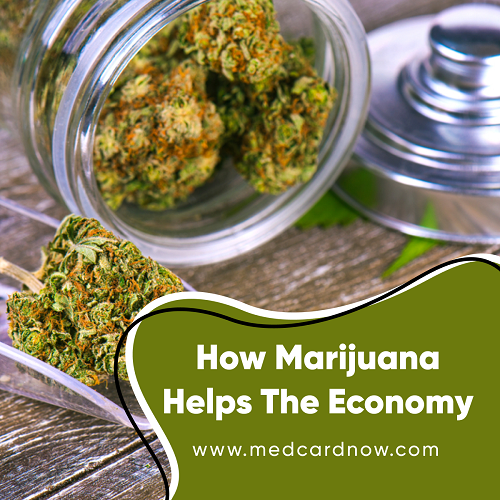
The cannabis industry is emerging despite controversies about its usage in several places. Research shows how marijuana helps the economy in terms of growth. Marijuana brings significant tax revenue to states and generates thousands of jobs. It also helps remove the economic and racial disparities between different communities. It’s clear how marijuana helps the economy. The cannabis industry is certainly an invaluable contributor to the US and global economies.
After decades of stigmatization, governments are beginning to accept cannabis. While cannabis remains a Schedule 1 drug under federal law most states allow its usage. Several states are also decriminalizing the use of recreational cannabis. The well-known medical marijuana benefits, notably for chronic pain relief bolster research on the plant. Here are some proven ways how marijuana helps the economy.
High Tax revenue
Marijuana can bring considerable tax revenues to the economy. The legalization of cannabis in California in 2016 led to a 15% state tax excise on retail cannabis sales. The California Department of Tax and Fee Administration notes that the cannabis industry brings $411.3 million in excise tax. All these taxes led to $845.3 million in tax revenue for the third quarter of 2019.
Other states also benefit from cannabis legalization. Colorado spent 40 million of its tax revenues from cannabis on public schools construction. The state also spent an additional 27.8 million to fund public education. Washington state spent 314.8 million of tax revenue to fund Medicaid. The cannabis industry has the potential to generate income to fund infrastructure. This includes school and health care that positively contributes to economic growth.
Increase income and Jobs
RCG Economics study reports that marijuana legalization creates 6,208 new full-time jobs in retail. Furthermore, marijuana production generates a total labor income of $260,732,000. Apart from direct retail jobs, the industry indirectly creates jobs in different sectors. Now you can find cannabis jobs relating to marketing, data analysis, law, health care, etc. Jobs in the cannabis industry can surpass that of coal mining and textile manufacturing.
The economic benefits of more job opportunities are essential because they can positively contribute to economic growth. Since most conventional jobs are replaced by machinery, cannabis is not fully machinery. The Bureau of Labor Statistics forecasts a 110% rise in cannabis jobs over the next decade.
Cannabis is still a sector that requires more research. This means jobs for researchers and data analysis will become essential. Cannabis business owners also need lawyers to help surpass new regulations in legal cannabis states. There is also the demand for lobbyists to pressure the other states to decriminalize marijuana.
Lessen crime and Social Stigma
The rate of arrests relating to cannabis possession is quite high. Reports show that the number was higher than all arrests for violent crimes. These high arrests only lead to a waste of taxpayers’ money. Legalizing marijuana can reduce arrests relating to possession and consumption. The money for prosecuting cannabis offenders can help to improve the education or healthcare sector.
Cannabis arrests are often a way to target black and brown communities. While Americans have similar rates of cannabis consumption, black people are more likely to face jail time. This type of racial profiling increases the economic disparities between communities. Individuals who face jail time hardly find jobs when they get out. This high joblessness increases insecurity in these communities.
Cannabis legalization removes previous cannabis convictions, making it easy for people to find jobs. This will help the economy to grow in terms of output.
Bottom line
Legalizing marijuana has a social implication that promotes economic growth. As cannabis becomes legal government will better understand how marijuana helps the economy. Legalizing marijuana will make people easily buy from legal cannabis dispensaries. It also offers jobs for thousands of individuals. Furthermore, the government will spend less money on convicting unnecessary crimes and use it on education and infrastructure.



